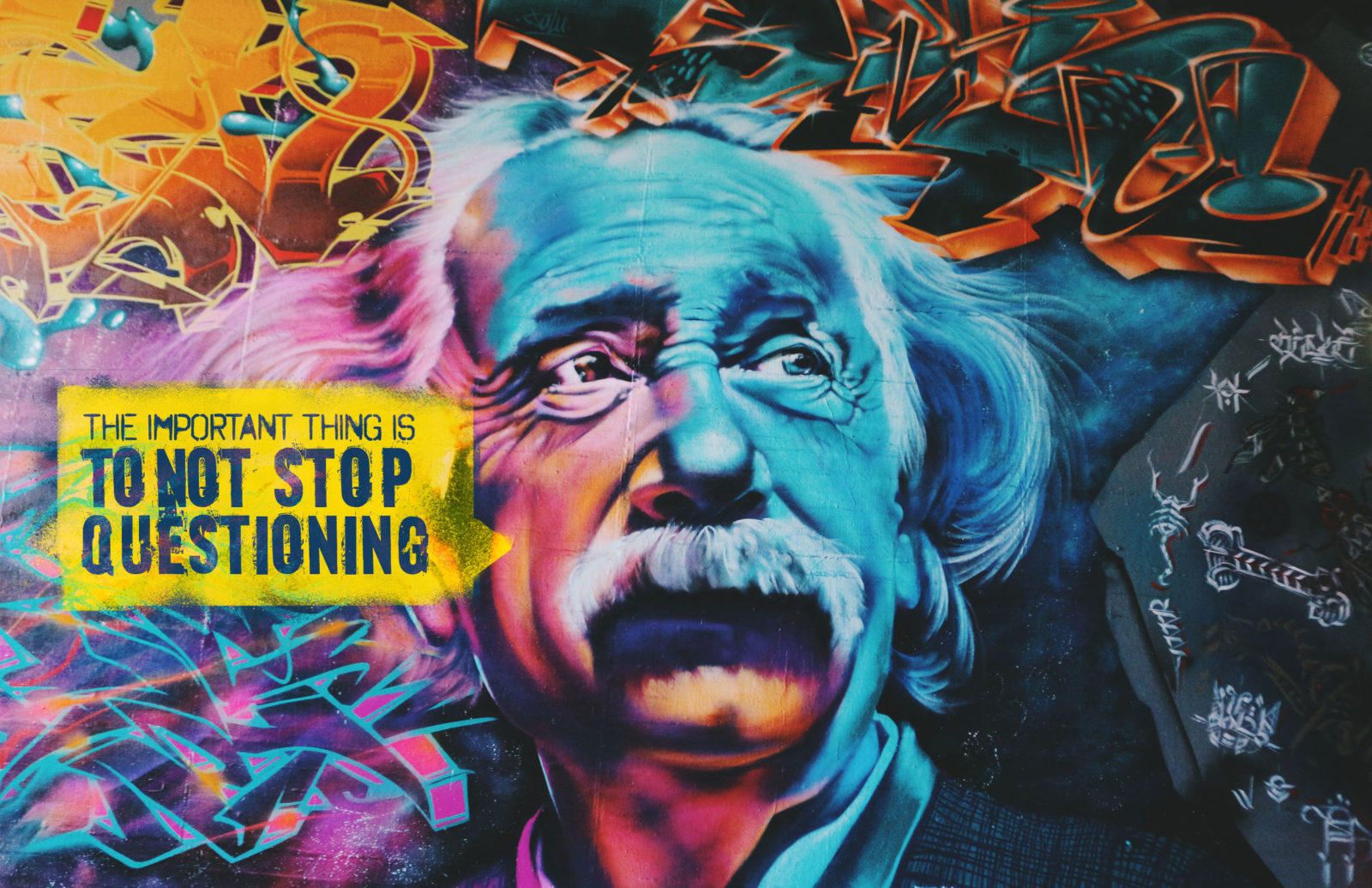About
Before his rise to fame, Einstein was in many respects a scientific upstart. He failed to find an academic post and worked in Switzerland as a patent examiner instead. Without title, institutional backing, or existing empirical data, Einstein respectfully but boldly challenged Newton’s widely held and longstanding theory of gravitation. “Newton, forgive me,” he later wrote. Throughout his groundbreaking career, Einstein freely questioned the received consensus and rival theories while openly reflecting upon the ethical and religious implications of his work.
Einstein kept questioning and still beckons each of us to the same “holy curiosity”.
The important thing is not to stop questioning. Curiosity has its own reason for existing. One cannot help but be in awe when he contemplates the mysteries of eternity, of life, of the marvelous structure of reality. It is enough if one tries merely to comprehend a little of this mystery every day. Never lose a holy curiosity.
Albert Einstein, Memoirs of William Miller, quoted in Life Magazine, May 2, 1955
Free Science
Free science is not a free-for-all. The sciences ought to be governed by proven norms and rigors relevant to each subject. In astrophysics, the maths must sum; in sociology, the samples must be representative; in marine biology, the instruments must be fastidiously maintained. Far from being detrimental to the sciences, free inquiry and free speech lead not to chaos but to discovery. Orderly processes for sifting scientific ideas are well known and we celebrate them. Peer review, repeatability, predictive success, and sound inference — these are some of the methods and markers properly called scientific. Freedoms to inquire, to research, to hypothesize, and to present are met with corollary freedoms to question, to reproduce, to criticize, and to reject.
From what, then, ought science be free?
Human as it is, the scientific enterprise can be short-circuited by entrenched ideas and vested interests. New or disfavored ideas can be kept at bay not by good science, but by abuses of authority and power: harassment, viewpoint discrimination, censorship, dismissal, barriers to entry, and preferential hiring. New scientific discoveries will unavoidably overturn consensus, shift funding, and disrupt the status quo. To guard against corruption and to live up to its own ideals, scientists and students must be free to explore new and dissenting ideas free from the threat of academic or professional sanctions. As Michael Polanyi would have it:
Academic freedom consists in the right to choose one’s own problem for investigation, to conduct research free from any outside control, and to teach one’s subjects in the light of one’s own opinions.
Michael Polanyi, “The Foundations of Academic Freedom”
While this ideal is widely recognized by the scientific community in principle, it has frequently been violated when the orthodoxies of neo-Darwinism or methodological naturalism are questioned. The evidence for the explanatory sufficiency of the modern evolutionary synthesis is undeniably mixed. And from Newton to Einstein, seeing rationality and purpose in nature is no impediment to good science.
Today is the time to free science.
It is time to restore freedom of inquiry and of speech to those scientists and students who want to do science outside of the ideological prerequisites of naturalism and who want to follow the evidence regarding cosmological and biological origins wherever it may lead.
The Center for Science and Culture
A program of Discovery Institute, the Center for Science and Culture (CSC) promotes academic freedom for students, professors and scientists who question scientific claims that have become, in many places, unquestionable. Our primary focus is defending and advocating for those who dissent from blind evolution and embrace intelligent design. To this end:
- The CSC supports research and scholarship by scientists and scholars in their work at a variety of institutions.
- The CSC directly supports a research program investigating the evidence for and implications of the theory of intelligent design.
- The CSC provides advice to parents and school boards in regard to science education policy, and model academic freedom legislation for use at the state level. In public K-12 schools, the CSC favors giving teachers and students the freedom to discuss the scientific evidence for and against Darwinian evolution; it does not favor introducing the teaching of intelligent design. Read our Science Education Policy.
We regard free inquiry and free speech as first principles of science. So, for the sake of science, we urge scientists and academic institutions to allow — indeed to encourage — questioning and dissent.
Feel Free to Contact Us
To make contact, email us or call us at (206) 292-0401.
